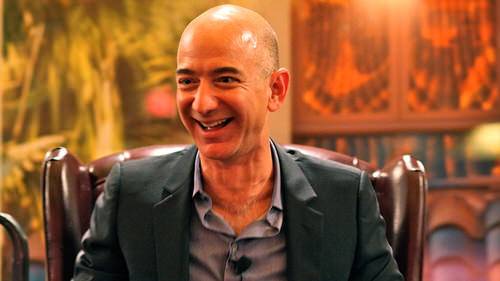
Everybody loves a free gadget. Or at least a very cheap one. E-commerce king Amazon is well aware of this fact and according to a recent report, could launch its own smartphone for free to the public.
A free smartphone? There has to be a catch. And of course there will be—if it ever happens at all, that is.
People “familiar with Amazon’s effort” told tech reporters Amir Efrati and Jessica Lessin that Amazon has been mulling the idea of giving away its long-rumored smartphone. The general notion is that Amazon would make the phone available without a carrier contract for … nothing.
Amazon has a long history of trying to undercut its competitors on price, often in hopes of convincing customers to buy more stuff from Amazon.com. But a straight up free smartphone would be extreme. Many Android smartphones are very cheap these days, but not many of them are sold for nothing.
Efrati and Lessin hedge their bets quite a bit in the report, as their sources told them that the free strategy may never happen:
The free strategy isn’t set in stone and depends on several factors, including Amazon’s ability to work out financial arrangements with hardware partners, said one of the people who is familiar with Amazon’s smartphone effort. This person and others expressed skepticism about Amazon’s ability to pull off a free device.
Amazon, of course, would most likely give away a smartphone only after tying it to all of the company’s services. Want music? You have to get it from Amazon. Movies? Amazon’s Video On Demand. Books, TV shows, apps … Amazon has all those, too. A paid subscription to Amazon Prime (at $79 a year) might also be in order.
Essentially, a free smartphone would mean selling your soul to Amazon.
Amazon Has Gone Down This Road Before
See also: What The Kindle Fire Says About Amazon’s Rumored Phone
For instance, look at Amazon’s Kindle Fire tablets. They are cheap (by comparison to other major tablet makers) and they are restrictive. If you want an app, you have to use the Amazon Appstore for Android. Want to get something from Google Play? Not going to happen. Amazon completely blocks the ability to access Google Play—even the Google Play website—through the Kindle Fire.
The company makes its own browser, has its own cloud storage services and content. If Amazon is giving you a smartphone, you are basically consenting to do nothing but purchase anything and everything from Amazon.
This might not be an entirely bad arrangement, especially if you buy most of your stuff through Amazon anyway. And Amazon could make it even sweeter.
Right now, even if you get a cheap smartphone, you have to pay the gatekeepers: the cellular operators. That cabal includes the likes of AT&T, T-Mobile, Verizon, Sprint and many other second and third tier operators in the United States. One way or another, you have to pay for voice and data plans and texts. Often you are getting sucked into a two-year contract with these companies and the operators know exactly how to wrench every last cent out of their users.
Amazon’s Secret Weapon: Free Data!
But what if you didn’t need a contract? Or even to pay for data? Amazon might be able to pull that off.
Amazon has kicked around the idea of becoming a MVNO, a mobile virtual network operator. A MVNO is an entity that basically resells service from one of the established cellular carriers. MVNOs are often independent SIM card sellers like Simple Mobile or H2O Wireless.
Sometimes, though, MVNOs operate specifically to serve up limited connections that deliver a small amount of wireless data from one point to another. In this way, Amazon already kind of works like an MVNO. If you have a Kindle e-reader with cellular connectivity, you’ve experienced it already.
Amazon has relationships with carriers across the world to provide data for users wanting to download books or newspapers on their Kindle readers (not the Kindle Fire tablets, though—just the e-ink variety). Users don’t pay for this service, and Amazon recoups the cost when a consumer buys a book on their Kindle. Amazon has already kicked around the idea of becoming a MVNO in markets like Japan.
Theoretically, Amazon could extend this capability to a free smartphone. It would mean becoming a full blown MVNO, as opposed to just buying some carrier data capacity for e-books, and Amazon doesn’t really have much experience in that market.
But, say you get a free Amazon smartphone that gives you free or very cheap data and voice service up to a certain point—say, 1GB per month. Wouldn’t that be an enticing deal? Amazon could pull it off and completely disrupt both the smartphone manufacturing industry and the carrier model in one blow. Amazon then recoups the cost when you buy anything with the device.
It might be a far-fetched plan, but so is the idea of a free smartphone. Jeff Bezos’s company has shown that it is crazy enough, and ambitious enough, to try it.




















